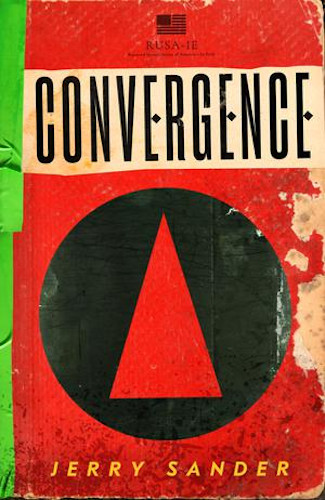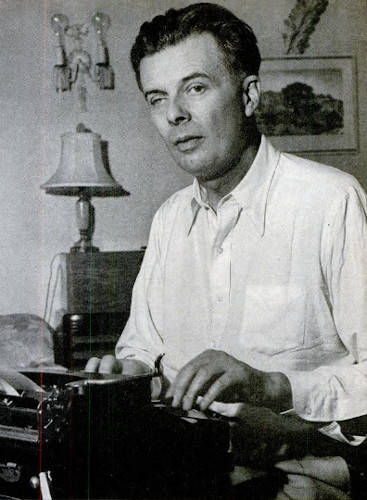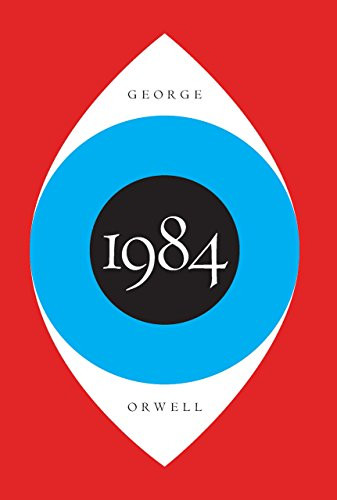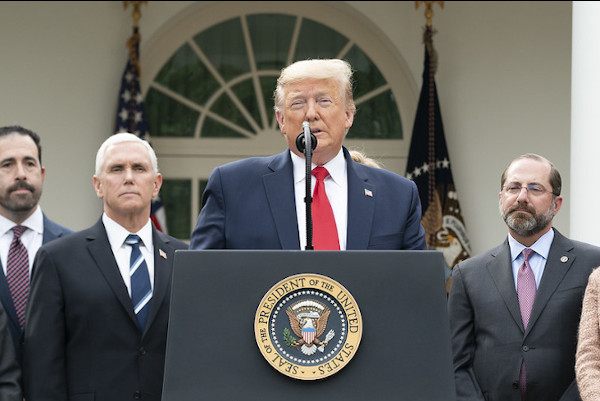How Huxley and Orwell Predicted Our Future (and Present)

Opinion:
It’s been more than 70 years since a former French teacher named Aldous Huxley sat down to write a letter to a former student (Eric Blair) whom he’d taught at Eton some 30 years earlier. Eric had a new name, George Orwell, and a new book, 1984, which Huxley praised, but which he believed got the future all wrong. The coming dystopia wouldn’t be kept running by thugs and torture as much as complacency brought on by various entertainment, legal substances that kept you high, free sex (for recreation, not procreation) and people who were proud to be in their own narrow social class — all things he’d outlined in his own book, Brave New World.
What would change Orwell’s world into Huxley’s, in Huxley’s opinion? It would be “a felt need for increased efficiency.”
But there is one thing Orwell got right: He understood that the ruling party (whichever one) could — with help from the media — convince the public of the absurd notion that 2 + 2 = 5, and that the previous country we’d been at war with was actually our ally and we’d always been at war with someone else. In fact, not only could the party make 2 + 2 = 5 happen, it was vitally important it do so. “Not merely the validity of experience, but the very existence of external reality,” Orwell wrote, “was tacitly denied by their philosophy.”

Fast-forward to 2020: We have a president elected to office, having received about 2.9 million fewer votes than his opponent, with about 54 percent of Americans disapproving of his performance. Realizing that most Americans did not vote for him -- and many regard him as an imposter -- he begins to lie. Big time. The Washington Post has recorded 492 lies during his first 100 days in office. Having gotten away with it repeatedly, his frequency went up to about six lies a day in 2017, 16 a day in 2018, and more than 22 a day in 2019. Now into the fourth year of his presidency, the figure is closing in on 17,000 lies in total.
What Huxley got right is that we wouldn’t be concerned much about the erosion of essential human truths and freedoms as long as our security was guaranteed, our prefrontal cortexes and amygdalas are allowed to process simple pleasures, and bad things weren’t actively happening to our own little group.
Here’s what, I believe, neither Huxley, nor Orwell, nor any of us saw coming: It’s not a matter of government using technology to enslave the people. It is a matter of technology using the government to harness people’s loyalties, monies, and energies. It is about the creation of a vast, quiet sea of smiling economic slaves.

Technology has proven itself more of a powerfully uniting force than government. The Trump/Never Trump divide is real and is full of unforgivable (and unforgiven) vitriol that promises to last into the next decade. The divide between Android and Apple, however, is a gentler one; some prefer one or the other, but we all come together in being addicted to our phones, are involved with our Alexas, and spend time with our Siri in our efforts to secure a smart-home.
You may say we don’t love our phones, and actually hate them, but—outside of the workplace — how many hours do you actually spend with people, places, or things you hate? Americans spend between three and nearly five-and-a-half hours a day with their devices. (“Is that a Galaxy 10 or 20 you’re holding? Wait, that’s the new iPhone?”)
In my novel, Convergence, I follow the logic to its conclusion: In the universally wired near future, the United States is given the opportunity to merge with the world’s largest search engine (WhoozHooz), and does so gladly, because the tech world is efficient, has actual plans it can implement, and will provide more security for all as the Triumvirate. (The third leg of this is the old stock market.) Together, the Triumvirate unites all through the HIVE.

Actually, we don’t have to worry about democratic forms of government stealthily using high-tech to bring about submission, as much as we have to worry about big business and high-tech coming together to absorb, and replace, the government. Convenience and entertainment are hard to ignore. We are willing to trade in all our freedoms in exchange for them.
Or so it seems. But maybe not to a new generation raised in this inherited tech-web. Turning to the past for answers, young people will have to dig, claw, and fight for what it used to mean to be human.

Author Bio:
Jerry Sander is the author of three novels: Convergence, Unlimited Calling (Certain Restrictions Apply), and Permission Slips. He is a New York-based psychotherapist who has worked with teenagers and their families for more than three decades and is a graduate of Oberlin College and New York University. Influenced by Aldous Huxley and George Orwell, he is deeply concerned about the trajectory of the world we are leaving to our children
For more information please visit www.rusa-ie.com.
For Highbrow Magazine
Image Sources:
--Courtesy of Jerry Sander
--Wikimedia.org (Creative Commons)
--Wikimedia.org (Creative Commons)
--Google Images
--Whitehouse.gov (Creative Commons)































































































































































































































































































































